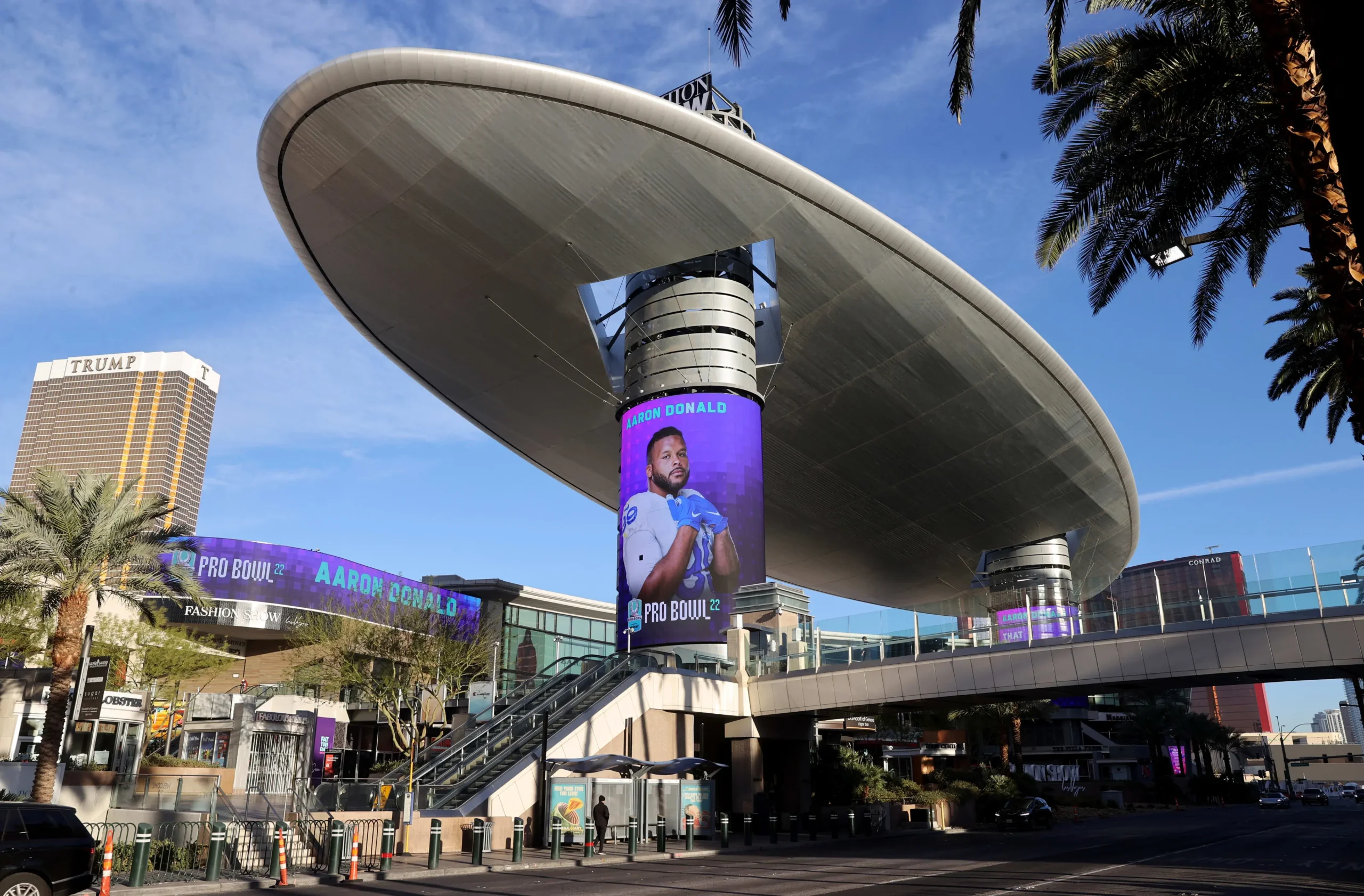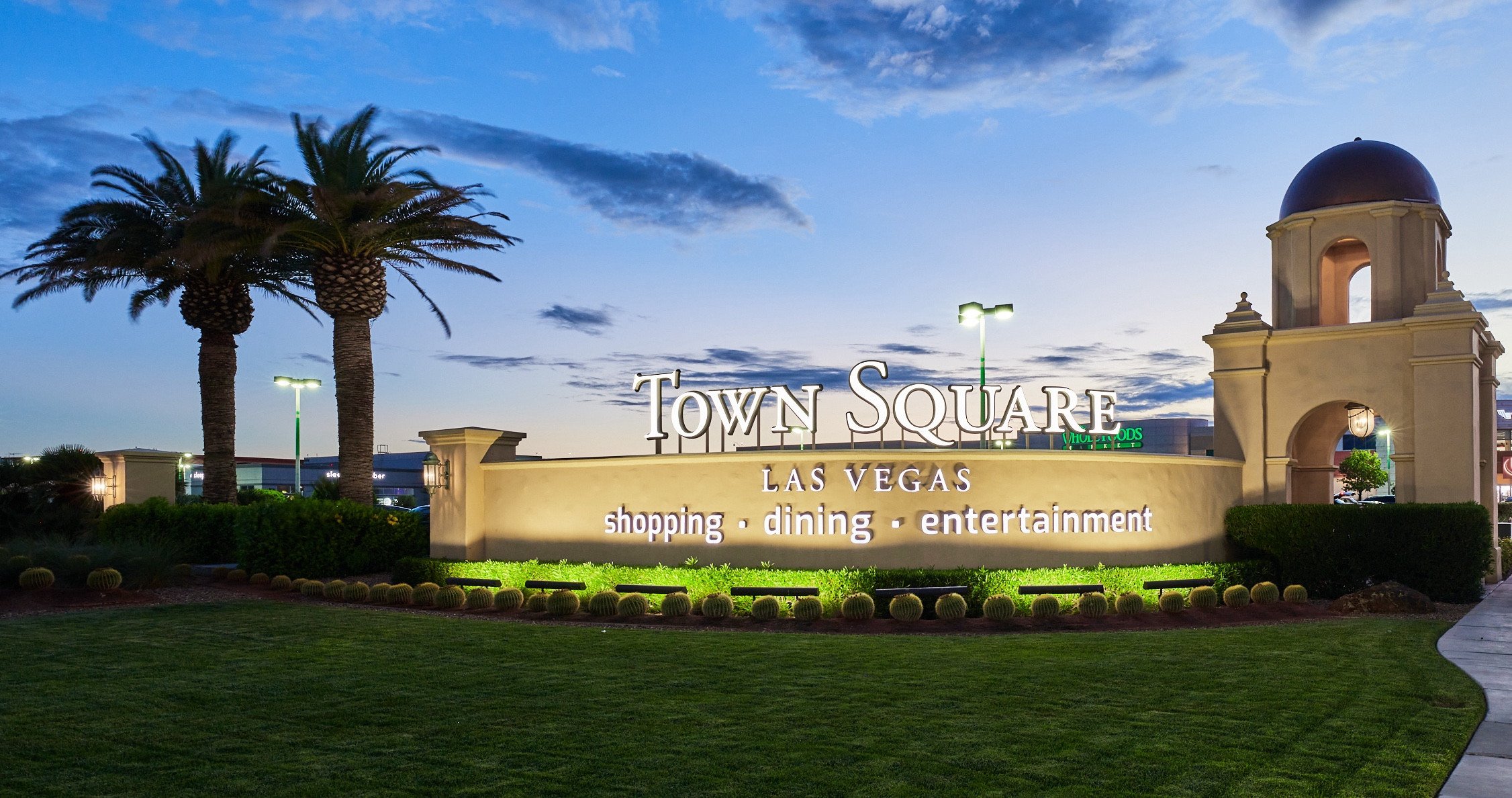Did you know that over 600 marketing professionals, executives, creators, and influencers gathered at the Variety’s Entertainment Marketing Summit in Los Angeles to explore the evolving landscape of marketing in the entertainment industry? This event provided a comprehensive look at the latest trends, strategies, and innovations shaping the future of marketing.
The Annual Marketing Summit covered a wide range of topics, from the impact of social media on sustainability to the influence of artists and athletes on video games. Speakers also delved into the marketing strategies for theaters and streaming, the use of artificial intelligence in entertainment marketing, and the evolving landscape of marketing in the streaming era.
Key Takeaways
- The entertainment industry is undergoing a massive transition, requiring marketing professionals to adapt their strategies.
- Sustainability and social responsibility are becoming increasingly important in marketing, with companies leveraging social media to drive positive change.
- The influence of artists and athletes is expanding beyond traditional advertising, shaping the marketing of video games and other entertainment products.
- The rise of streaming has transformed the way studios market their content, leading to more cohesive and platform-specific strategies.
- Artificial intelligence and machine learning are being used to analyze real-time data and optimize marketing campaigns.
Harnessing the Power of Social Media for Sustainability
At the Annual Marketing Summit, Jay Tucker, the executive director of UCLA’s Center for Media, Entertainment & Sports, engaged in a thought-provoking discussion with Lisa McKnight, the chief brand officer at Mattel. Their conversation centered around the iconic Barbie doll and its remarkable social media following, which has become a powerful tool for promoting social media marketing and sustainability.
Mattel’s Barbie: Inspiring Limitless Potential
Mattel has been on a transformative journey to reground the Barbie brand in its original purpose of inspiring the limitless potential in every girl. This commitment has led to the addition of diverse body types, ethnicities, skin tones, eye colors, hair fibers, and physical abilities to the Barbie line, empowering girls to see themselves reflected in the beloved doll.
Ocean-Bound Recycled Plastic: Barbie Loves The Ocean
Recognizing the importance of environmental sustainability, Mattel has also created a line of Barbie products made from ocean-bound recycled plastic, aptly named “Barbie Loves The Ocean.” This innovative move not only aligns with the brand’s core values but also demonstrates Mattel’s dedication to addressing pressing environmental issues through social media marketing and product innovation.
The Influence of Artists and Athletes on Video Games
In the ever-evolving world of entertainment marketing, the impact of video games, artists, and athletes has become increasingly intertwined. Activision, a leading video game publisher, has found innovative ways to leverage this powerful connection to engage gaming fandoms and create excitement for their upcoming titles.
Activision’s Live Events for Fan Engagement
Tyler Bahl, Activision’s Senior Vice President and Head of Marketing, shared insights on the company’s strategic approach to fan engagement. Activision hosts an annual event in August where they invite 250 of the biggest influencers to play the next multiplayer experience, creating a marquee event that generates buzz and anticipation among the gaming community. This live event not only allows Activision to showcase their latest video games, but also to tap into the influence of these artists and athletes to amplify the excitement and reach of their brand.
Los Angeles Rams’ Marketing Focus for the NFL Season
Kathryn Kai-ling Frederick, CMO of the Los Angeles Rams, also discussed the team’s marketing focus in the months leading up to the start of the NFL season. The Rams’ marketing strategy revolves around engaging their fan base and building anticipation for the upcoming season, including initiatives around the NFL Draft. By leveraging the popularity of the NFL and the draw of the Los Angeles market, the Rams are able to create a compelling narrative that resonates with their audience and drives fan engagement.
Marketing Strategies for Theaters and Streaming
As the entertainment industry navigates the ever-evolving landscape of content distribution, marketing strategies have had to adapt to the changing landscape. Patrick Cole, Disney’s VP of marketing, discussed how the advent of streaming has dramatically changed the way studios sell their content.
Disney’s Cohesive Storytelling Across Platforms
With streaming making it easy to get movies into the home, Disney has streamlined its marketing into one cohesive experience. The company is focused on thinking about how to make the content feel unique in each platform and give people something that feels like one big story. By integrating their marketing strategies across theaters and streaming, Disney is able to create a seamless and engaging experience for their audience, whether they are watching on the big screen or in the comfort of their own homes.
This approach to cohesive storytelling across different platforms allows Disney to leverage the strengths of each medium, ensuring that their content resonates with viewers and remains relevant in an increasingly fragmented media landscape. As the entertainment industry continues to evolve, Disney’s ability to adapt their marketing strategies will be key to their continued success in both the theater and streaming markets.
Artificial Intelligence in Entertainment Marketing
As the entertainment industry continues to evolve, the strategic application of artificial intelligence (AI) and machine learning (ML) has become increasingly integral to effective entertainment marketing. Robyn Malcomb, the senior director of media and entertainment at Samsung Ads, has been at the forefront of this technological transformation, discussing how her team leverages these cutting-edge tools to drive success for their clients.
Malcomb explained that the team at Samsung Ads starts by focusing on the client’s key performance indicators (KPIs) and then utilizes machine learning to build a tailored media plan that aligns with those objectives. By analyzing real-time data through the lens of AI, Malcomb and her team are able to make more informed and agile decisions, ultimately delivering highly effective entertainment marketing strategies for their partners.
The integration of artificial intelligence and machine learning has been a game-changer for the entertainment marketing industry, enabling teams like Samsung Ads to stay ahead of the curve and provide their clients with the most innovative and data-driven solutions. As the entertainment landscape continues to evolve, the strategic use of these powerful technologies will undoubtedly remain a critical component of successful entertainment marketing campaigns.
Annual Marketing Summit: Agility in a Streaming Landscape
The entertainment industry’s rapid evolution has underscored the crucial need for marketing agility, particularly in the streaming era. Pia Barlow, executive VP of marketing at Max, emphasized the importance of “marketing at the speed of culture” in her insightful presentation at the Annual Marketing Summit.
Reactive and Agile Content Marketing
Barlow’s team experienced this firsthand with the surprise hit of the ID docuseries “Quiet On Set: The Dark Side of Kids TV.” Recognizing the wave of coverage and interest the documentary received, they had to quickly adapt their marketing strategy to capitalize on the unexpected momentum. This ability to react swiftly and pivot content marketing efforts is essential in the fast-paced, streaming-driven landscape.
Capitalizing on Unexpected Social Media Trends
Domenic DiMeglio, CMO and head of data for Paramount Streaming, also emphasized the importance of keeping a pulse on social media trends and being ready to leverage them. He cited the resurgence of the anthology series “Why Women Kill” on TikTok as a prime example, highlighting the value of staying attuned to social media trends and content marketing to maximize audience engagement.
As the entertainment industry navigates the streaming revolution, the Annual Marketing Summit underscored the critical need for agility and the ability to respond swiftly to evolving social media trends and consumer behaviors. Successful content marketing strategies in this dynamic landscape require a heightened sense of adaptability and a willingness to embrace the speed of cultural shifts.
Cross-Platform Marketing in a TikTok-Driven World
In today’s rapidly evolving digital landscape, where social media platforms like TikTok have captivated the attention of consumers, cross-platform marketing has become a crucial strategy for brands and marketers. A panel discussion moderated by Dennis Ortiz, principal consultant at Deloitte, delved into the nuances of navigating this dynamic environment.
Targeted Approach for Different Platforms
The panelists emphasized the importance of reaching diverse audiences across multiple platforms, each with its unique characteristics and user preferences. Dustin Sandoval, VP of social media and digital at Lucasfilm, highlighted the opportunity for brands to be more targeted in their approach, ensuring that the content is custom-tailored to each platform.
“It’s no longer a one-size-fits-all approach,” Sandoval explained. “Consumers expect personalized experiences, and brands must adapt their content and messaging to resonate with the specific audiences on each platform.”
Creating and Staying Connected with Consumer Communities
Another crucial aspect of cross-platform marketing is the ability to create and maintain strong connections with consumer communities. Brands that foster meaningful engagement across social media platforms can cultivate a loyal following and deeper brand loyalty.
“The key is to build and nurture communities around your brand,” said one of the panelists. “By listening to your audience, providing valuable content, and fostering two-way conversations, you can create a sense of belonging that transcends individual platforms.”
The discussion emphasized the need for brands to remain agile, responsive, and attuned to the evolving trends and preferences of their target audiences across the ever-changing social media landscape.
Propelling Brands into Mainstream Culture
As the entertainment industry continues to evolve, brand promotion and personal branding have become increasingly crucial for businesses and individuals alike. Paris Hilton, CEO of 11:11 Media, and Bruce Gersh, president and COO of 11:11 Media, shared their insights on navigating the ever-changing landscape of brand promotion and personal branding.
Paris Hilton: Staying Ahead of Social Media Trends
Paris Hilton, the iconic socialite and entrepreneur, discussed her passion for exploring different social media platforms, including TikTok and Roblox, and her ability to stay ahead of emerging social media trends. Hilton attributed this to being an “undercover nerd” and being obsessed with keeping up with the latest platforms and digital innovations.
Hilton’s strategic approach to personal branding has allowed her to maintain relevance and connect with audiences across generations. By embracing new technologies and platforms, she has demonstrated her adaptability and her ability to remain at the forefront of cultural trends.
Gersh, who has worked closely with Hilton, echoed the importance of staying ahead of the curve in the digital age. He emphasized the need for businesses and individuals to continuously explore emerging social media and digital channels to effectively promote their brands and connect with their target audiences.
The discussion highlighted the power of personal branding and the ability to leverage social media to propel brands into mainstream culture. By embracing new technologies and adapting to changing trends, brands and individuals can maintain their relevance and establish a strong presence in the ever-evolving media landscape.
Innovating Marketing for Audiences
A panel discussion, “Race to Innovate for Audiences,” explored the cutting-edge realm of marketing innovation, focusing on the strategic use of data analytics and the imperative to engage audiences across diverse platforms. Alex Angeledes, Google’s managing director of media and entertainment, highlighted YouTube’s remarkable track record of paying out $70 billion to creators over the past three years – a testament to the changing content consumption model that is reshaping the industry.
Data Analytics and Audience Engagement
Panelists delved into the power of data analytics to inform and refine marketing strategies, enabling brands to connect with their target audiences in more meaningful and impactful ways. By harnessing the wealth of data available, marketers can gain invaluable insights into consumer behavior, preferences, and engagement patterns, empowering them to craft personalized, audience-centric campaigns that resonate with their customers.
The Changing Content Consumption Model
The discussion also explored the profound shifts in content consumption habits, driven by the rise of digital platforms and evolving viewer preferences. Angeledes’ insights on YouTube’s substantial payout to creators underscored the growing importance of innovative marketing strategies that can keep pace with the dynamic landscape of media and entertainment. As audiences increasingly seek out diverse, personalized content, marketers must adapt their approaches to remain relevant and engaging.
Building Successful Brand Relationships
In today’s competitive marketing landscape, cultivating meaningful brand relationships has become essential for standing out and resonating with consumers. Gigi Guerra, VP of marketing at Target, shared insights on the importance of fostering a “return on relationships” when collaborating with talent and brands.
Target’s “Return on Relationships” Motto
Guerra emphasized the need for a mutually beneficial relationship, where both parties can create something meaningful and impactful. “It’s not just about a one-off collaboration,” she explained. “We’re looking for opportunities where we can work together to drive real value for our customers and build long-lasting connections.”
Leveraging Existing Connections for New Brands
Molly Sims, founder of Yse Beauty, shared a similar perspective on the power of relationships in launching a new brand. “When I started Yse Beauty, I relied heavily on the advice and support of my industry contacts,” Sims said. “Leveraging those existing connections and relationships was crucial in getting the brand off the ground and building early momentum.”
Both Guerra and Sims emphasized the importance of fostering brand relationships that go beyond transactional partnerships, focusing instead on collaborations that create meaningful value for both parties and their audiences.
Conclusion
The Annual Marketing Summit provided a comprehensive look at the evolving landscape of marketing in the entertainment industry. From harnessing the power of social media for sustainability to the influence of artists and athletes on video games, the event covered a wide range of topics that are shaping the future of marketing.
Speakers shared invaluable insights on integrating marketing strategies for both theaters and streaming platforms, as well as the transformative role of artificial intelligence in entertainment marketing. The importance of agility and cross-platform approaches in a TikTok-driven world was also highlighted, emphasizing the need for marketers to stay ahead of the curve.
Furthermore, the event underscored the value of building successful brand relationships and innovating marketing to cater to the changing consumption patterns of audiences. As the entertainment industry continues to evolve, the key takeaways from the Annual Marketing Summit will undoubtedly guide marketers in their pursuit of engaging and captivating their target audiences.
FAQ
What was the key focus of the Annual Marketing Summit?
The Annual Marketing Summit brought together over 600 marketing professionals, executives, creators and influencers to examine all aspects of marketing as a discipline during a time of massive transition in the entertainment business. The event covered a wide range of topics, including the impact of social media on sustainability, the influence of artists and athletes on video games, marketing strategies for theaters and streaming, the use of artificial intelligence in entertainment marketing, and the evolving landscape of marketing in the streaming era.
How did Mattel revamp the Barbie brand?
Mattel has been on a journey to reground the Barbie brand in its original purpose of inspiring the limitless potential in every girl, adding body diversity, ethnic diversity, different skin tones, eye color, hair fiber, and physical abilities to the line. Mattel also created a line of products made from ocean-bound recycled plastic called “Barbie Loves The Ocean”.
How does Activision engage with gaming fandoms?
Activision hosts an annual event in August where they invite 250 of the biggest influencers to play the next multiplayer experience, which becomes a marquee event to engage with gaming fandoms and create excitement before a game is released.
How has Disney adapted its marketing for the streaming era?
Disney has streamlined its marketing into one cohesive experience, thinking about how to make the content feel unique in each platform and give people something that feels like one big story, as the advent of streaming has dramatically changed the way studios sell their content.
How is Samsung Ads using AI and machine learning for their clients?
Samsung Ads’ team has been using AI and machine learning to analyze real-time data for their clients. They start with the client’s key performance indicators and then use machine learning to build the media plan from the KPI, which has been very successful.
What strategies did the panel discuss for cross-platform marketing?
The panelists discussed the importance of reaching different audiences on different platforms, customizing content for each platform, and creating and staying connected with consumer communities. Dustin Sandoval from Lucasfilm emphasized the opportunity to be more targeted in their approach and ensure their content is custom across the board.
How does Paris Hilton leverage social media platforms for her brand?
Paris Hilton, CEO of 11:11 Media, shared her passion for exploring different social media platforms, including TikTok and Roblox, and her ability to stay ahead of emerging social media trends, which she attributed to being an “undercover nerd” and obsessed with keeping up with the latest platforms.
What insights did the panel on “Race to Innovate for Audiences” provide?
The panel discussion explored the use of data analytics, reaching audiences on different platforms, and the impact of artificial intelligence on marketing. Alex Angeledes from Google highlighted YouTube’s track record of paying out billion to creators over the past three years as a marker of the changing times for content and audience consumption.
What is Gigi Guerra’s approach to “return on relationships” when working with talent and brands?
Gigi Guerra, VP of marketing at Target, emphasized the need for a mutually beneficial relationship when working with talent and brands, where both parties can create something meaningful.


















